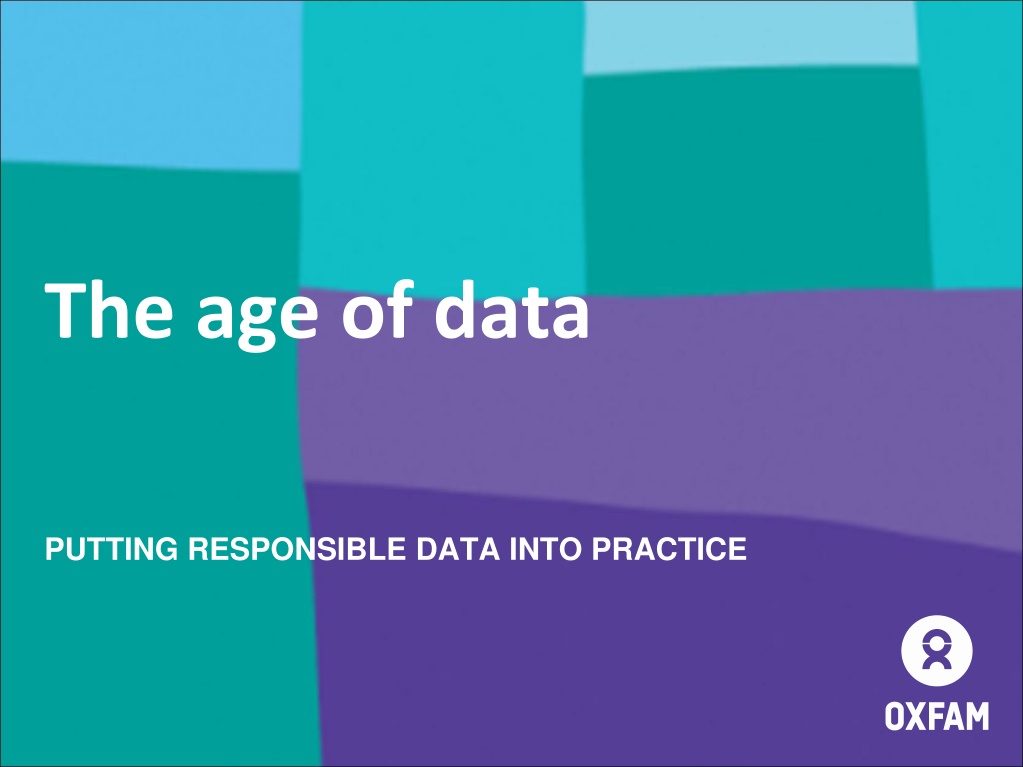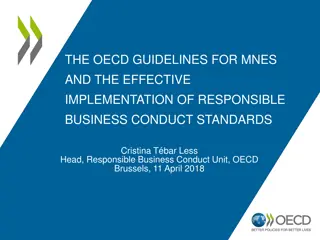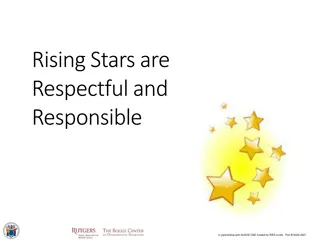The Age of Data: Understanding Responsible Data Practices
Exploring the impact of the digital revolution on data generation, the value of data, responsible data management, and the power dynamics associated with data collection. Emphasizing the importance of ethical handling of data to empower individuals and drive positive change through new technologies.
Download Presentation

Please find below an Image/Link to download the presentation.
The content on the website is provided AS IS for your information and personal use only. It may not be sold, licensed, or shared on other websites without obtaining consent from the author.If you encounter any issues during the download, it is possible that the publisher has removed the file from their server.
You are allowed to download the files provided on this website for personal or commercial use, subject to the condition that they are used lawfully. All files are the property of their respective owners.
The content on the website is provided AS IS for your information and personal use only. It may not be sold, licensed, or shared on other websites without obtaining consent from the author.
E N D
Presentation Transcript
The age of data PUTTING RESPONSIBLE DATA INTO PRACTICE
THE DIGITAL REVOLUTION: AN EXPLOSION IN DATA Every day, we create 2.5 quintillion bytes of data* 90% of the data in the world today has been created in the last two years** In 2000, 25% of data was stored in digital form, in 2007 it was 94%***
THE AGE OF DATA: NEW TECHNOLOGIES New digital technologies offer opportunities to better understand people s needs and behaviours and to increase efficiency and impact The overwhelming amounts of data we collect and manage require significant analytical capacity and a need to manage security and privacy risks When used sensitively and appropriately the information we collect, and stories, perspectives and experiences we help to tell can help bring about tremendous positive change.
DATA AND POWER Data exercises power. It can create it, redistribute it, amplify or disrupt it. It can entrench and privilege certain actors or perspectives, but it can also empower new voices and approaches. It can reveal and unravel atrocities, but it can also expose the vulnerable and marginalised Collecting data about someone creates an inherent power imbalance to the extent that the data collector effectively owns a commodity relating intimately to an individual Extracts from Shooting our hard drive into space https://responsibledata.io/ways-to-practise-responsible-development-data/
WHAT IS RESPONSIBLE DATA MANAGEMENT?
WHAT IS RESPONSIBLE DATA MANAGEMENT? Treating the people whose data we manage with respect and dignity, and ensuring that we always act in their best interests. A constantly evolving process about deciding when and how to collect data and how to manage risks. A policy is not enough alone, we need to practice responsible data management: More than just about following rules and complying with the law - it's also about our culture and individual attitudes towards managing and handling data. We must also consider our organisation's internal policies as well as the growing body of legislation around data management
RIGHTS RELATING TO INFORMATION A The right to be counted and heard B The right to dignity and respect C The right to make an informed decision D The right to privacy E The right not to be put at risk

 undefined
undefined





















